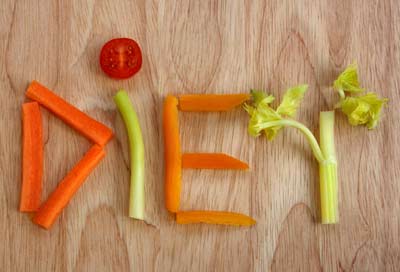Women who ate soy regularly as children have a lower risk of breast cancer, American researchers report. And men who eat fish several times a week have a lower risk of colon cancer, a second team of researchers have told the American Association for Cancer Research.
據(jù)美國(guó)研究人員報(bào)告,兒童時(shí)期經(jīng)常吃豆類食品的女性患乳腺癌的風(fēng)險(xiǎn)較小。另一組研究人員則向美國(guó)癌癥研究協(xié)會(huì)提出,一周吃幾次魚的男性患結(jié)腸癌的幾率較小。

The studies add to a growing body of evidence about the role of diet in cancer. Cancer experts now believe that up to two-thirds of all cancers come from lifestyle factors such as smoking, diet and lack of exercise.
這兩項(xiàng)研究進(jìn)一步證明了飲食對(duì)于防癌的作用。癌癥防治專家認(rèn)為,在所有種類的癌癥中,多達(dá)三分之二都是由吸煙、節(jié)食及缺乏鍛煉等生活方式造成的。
The US National Cancer Institute and researchers at the University of Hawaii found that women who ate the most soy-based foods, such as tofu and miso, when aged 5 to 11, reduced their risk of developing breast cancer by 58 per cent. It was not clear how soy might prevent cancer, though compounds in soy called isoflavones have estrogen- like effects.
美國(guó)全國(guó)癌癥研究所和夏威夷大學(xué)的研究人員發(fā)現(xiàn),在5歲至11歲時(shí)經(jīng)常吃豆腐、味噌等豆類食品的女性患乳腺癌的幾率要低58%。至于豆類食品為什么可以防癌還不清楚,不過大豆中所含的名叫異黃酮的化合物具有雌性激素的作用。
A second study showed that men who ate fish at least five times a week had a 40 per cent lower risk of developing colorectal cancer compared with men who ate fish less than once a week.
另一項(xiàng)研究表明,一周吃魚至少五次的男性患結(jié)腸癌的風(fēng)險(xiǎn)要比那些一周都吃不到一次魚的男性低40%。
Many kinds of fish are rich in omega-3 fatty acids, which interfere with the cyclooxygenase-2 or COX-2 enzyme. COX-2 affects inflammation, which may play a role in tumour growth.
很多魚類中所富含的Omega-3脂肪酸能夠抑制環(huán)氧化酶2的活性。環(huán)氧化酶2會(huì)引起發(fā)炎,這可能會(huì)刺激腫瘤的生長(zhǎng)。
(來源:網(wǎng)絡(luò) 實(shí)習(xí)生許雅寧 英語點(diǎn)津Jennifer編輯)